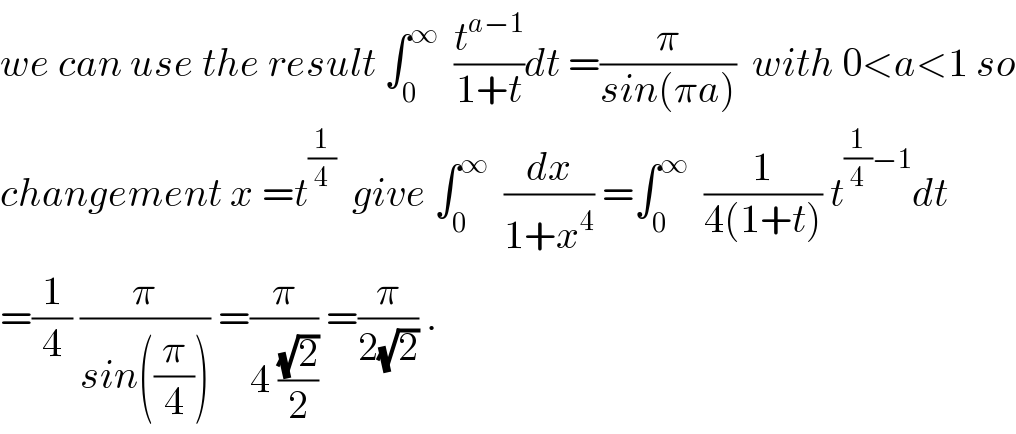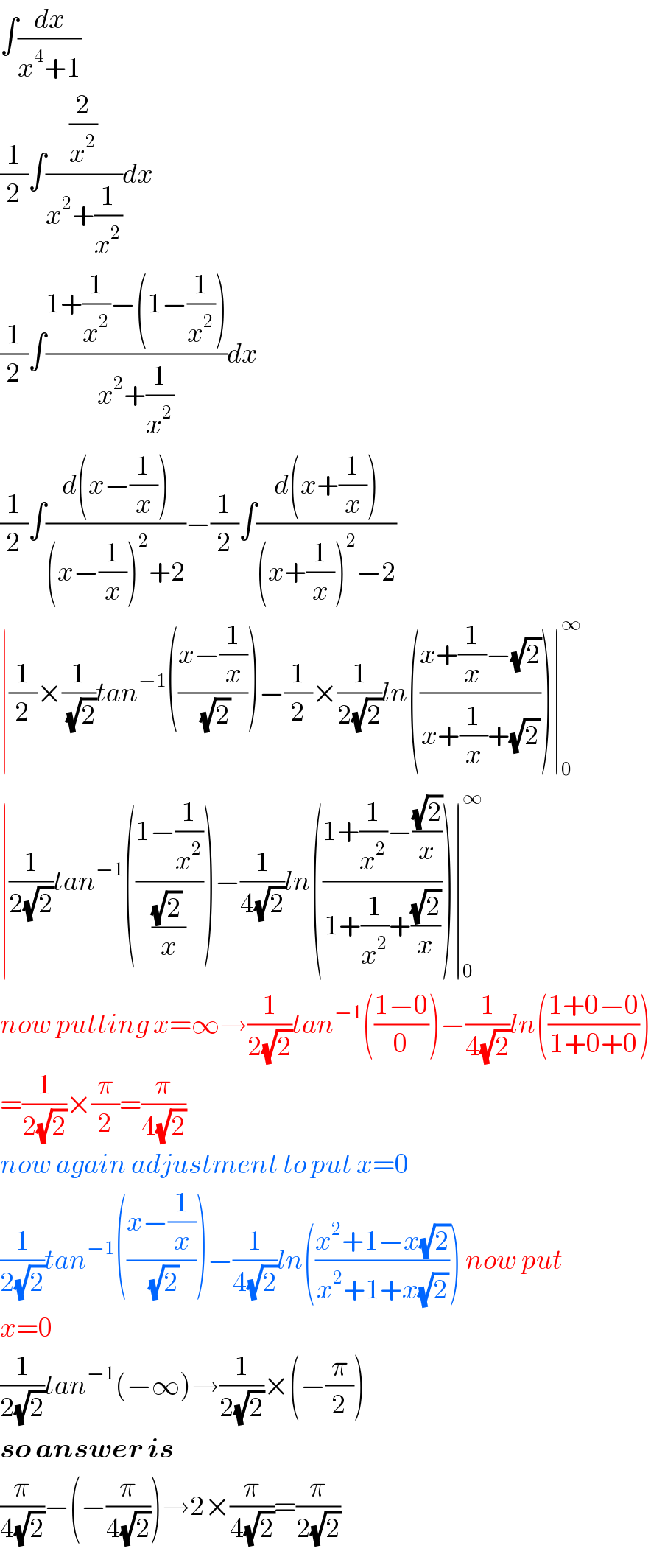
Question and Answers Forum
Question Number 56383 by Tawa1 last updated on 15/Mar/19

Commented by Tawa1 last updated on 16/Mar/19

Commented by maxmathsup by imad last updated on 15/Mar/19
![∫_(−1) ^7 (dx/((^3 (√(x+1)))))dx =_(x+1 =t^3 ) ∫_0 ^(2(√2)) ((3t^2 dt)/t) =3 ∫_0 ^(2(√2)) tdt =3[(t^2 /2)]_0 ^(2(√2)) =(3/2){2(√2))^2 =12.](Q56395.png)
Commented by maxmathsup by imad last updated on 16/Mar/19

Commented by Abdo msup. last updated on 16/Mar/19

Answered by tanmay.chaudhury50@gmail.com last updated on 15/Mar/19

Commented by Tawa1 last updated on 15/Mar/19

Answered by tanmay.chaudhury50@gmail.com last updated on 15/Mar/19
![lim_(a→−1) ∫_a ^7 (dx/((1+x)^(1/3) )) lim_(a→−1) ∣(((1+x)^(((−1)/3)+1) )/(2/3))∣_a ^7 =lim_(a→−1) [(3/2)(8)^(2/3) −(3/2)(1+a)^(2/3) ] =(3/2)×4→6 ans](Q56389.png)
Commented by Tawa1 last updated on 15/Mar/19

